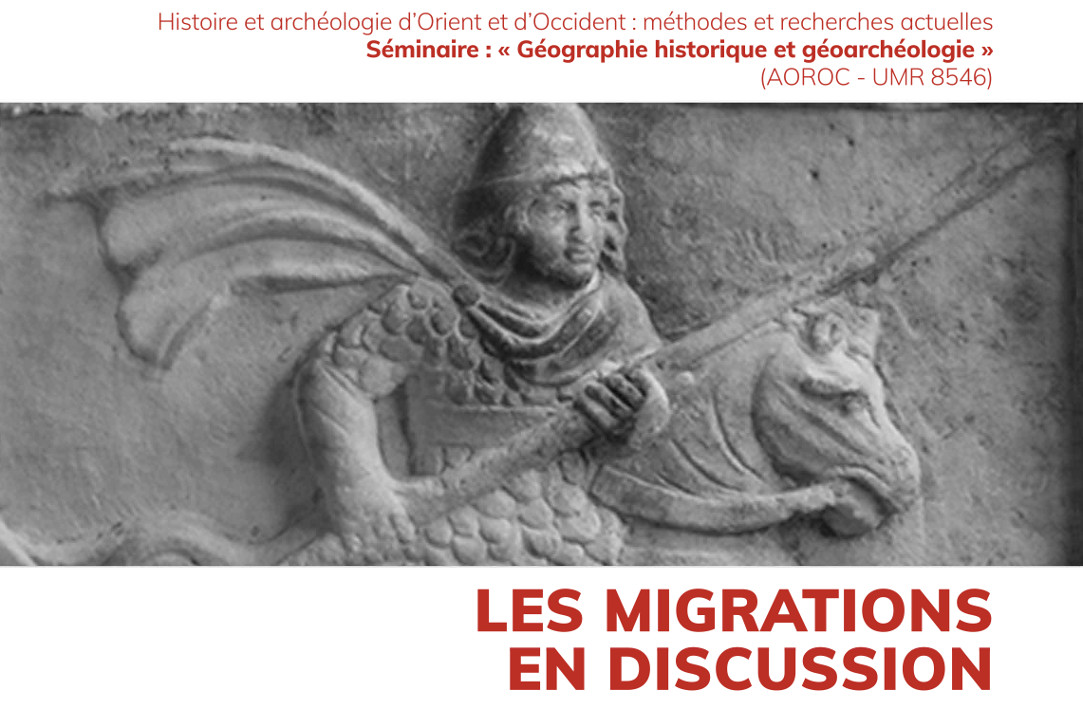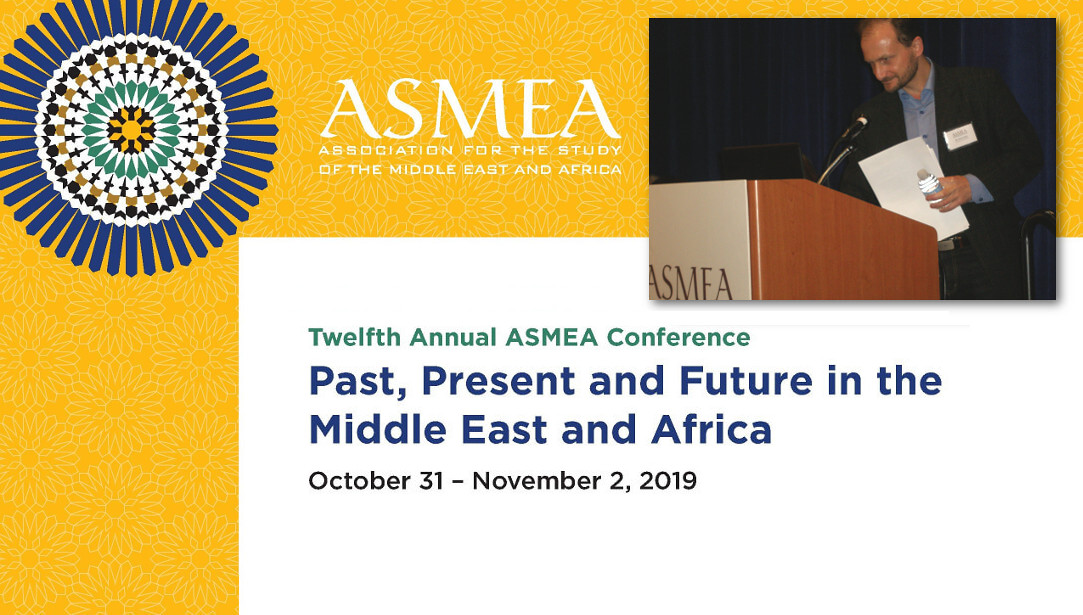
“Magic in Mesopotamia”: a lecture by Dr. JoAnn Scurlock
24 March, Dr. JoAnn Scurlock (Elmhurst College, emerita) presented her lecture “Magic in Mesopotamia” at the seminar “Traditions of Magic in the Near East and Caucasus” (moderator: Alexey Lyavdansky, Senior Lecturer, IOCS HSE).

“How aggressive is Aramaic aggressive magic?”: a paper by Chaja‑Vered Dürrschnabel
February 3, 2021, Chaya-Vered Dürrschnabel (Researcher, University of Bern) presented her paper “How aggressive is aggressive magic? Apotropaic aspects of Jewish Babylonian Aramaic curse bowl texts” at the seminar “Traditions of Magic in the Near East and Caucasus” (moderator: Alexey Lyavdansky, Senior Lecturer, IOCS HSE).

Migrations of Ancient Societies: Les migrations en discussion
On the 23rd of October 2020, Valentina Mordvintseva and Jean‑Paul Demoule delivered lectures during the discussion «Les Migrations en discussion» («Migrations in a discussion») in the series of online‑seminars «Géographie historique et géoarchéologie» («Historical Geography and Geo‑archaeology») of the l’École normale supérieure, Paris organized by Prof. Anca Dan.

Eurasian Lectures in German Archaeological Institute
Dr. Valentina Mordvintseva gave a lecture ‘The Sarmatian Archaeological Culture: The Network Model vs. Speculative’ in a series of on‑line lectures of the Eurasian Department of German Archaeological Institute.

Irina Samarina: Have tonal languages always been tonal?
Brazilian Linguistics Association, Abralin, in cooperation with Comité International Permanent des Linguistes, Asociación de Lingüística y Filología de América Latina, Sociedad Argentina de Estudios Lingüísticos, Associação de Linguística Aplicada do Brasil, Association Internationale de Linguistique Appliquée, Linguistic Society of America, Linguistics Association of Great Britain, Societas Linguistica Europaea, Australian Linguistic Society, British Association for Applied Linguistics, and Sociedad Española de Lingüística is organizing a virtual event: Abralin ao Vivo — Linguists Online. Irina Samarina gives her lecture ‘Have tonal languages always been tonal? Vietic languages and the monosyllabisation process’.

Celebration of the Centenary of the International Union of Academies in Paris: Askold Ivantchik, Vice‑President of the Union—one of the organizers of the event
From 22 to 29 November, Paris hosted the celebration of the 100th anniversary of the International Union of Academies (Union académique international, UAI–IUA)—the most prestigious international organization in the humanities and social sciences. The head of the Centre of Classical and Oriental Archaeology, IOCS HSE, Askold Ivantchik, elected two years ago Vice‑President of the International Union of Academies, took an active part in its preparation and holding.

How to Teach Classical Archaeology — Talk by Askold Ivantchik in Phanagoria
International conference “Ancient Heritage of Kuban” took place on November 5–7, 2019 at the Phanagoria Museum‑Reserve (Sennoi of the Krasnodar region). The conference was attended by researchers from Russia, Germany and France. The head of the Center of Classical and Oriental Archaeology, IOCS HSE, Askold Ivantchik gave a talk on “Problems of Teaching Classical Archaeology: To What and How to Train Archaeologists-Classicists”.

Dr. Denis Volkov: ‘Was there “Russia Abroad” at all? Russian Emigration in the Middle East (1917–1946)’
The paper of Dr. Volkov was presented on December 11th, 2019 at the seminar “Oriental Cultures” (Moderator: Dr. Natalia Chalisova). This talk was about the interim research results achieved in a project carried out under the aegis of the International Institute of Social History (IISH, Amsterdam) and funded by the Farman‑Farmaian Family and the Royal Netherlands Academy of Arts and Sciences.

Flying Away from the Bolshevik Winter: Soviet Refugees Across the Southern Borders (1917–1946) — Dr Denis Volkov’s Paper
Methodologically drawing on the most recent works in Migration Studies and Russian Emigré Studies the current research studies migration from the USSR into Turkey, Iran and Afghanistan (1917–1946). Using recently declassified documents from archives in Britain, France, Turkey, Azerbaijan, Russia and Iran, research looks into the phenomena, such as displaced statehood, political activism and cross‑cultural interaction in the context of the migration/refugees policies of the relevant states (Britain, the USSR and the host countries).

International Scientific Conference “Archaeology of classical Bosporus and Pontus”
The conference “Archaeology of classical Bosporus and Pontus” dedicated to the 80th anniversary of Dmitry Borisovich Shelov was held in Rostov‑on‑Don, on October 28 — November 1, 2019. Head of the Centre of Classical and Oriental Archaeology Askold Ivantchik, Associate Professor Valentina Mordvintseva and students of the program “Classical and Oriental Archaeology” Alexey Devayev, Vladimir Lysenko and Pavel Nikulin presented there their lectures. The conference was very representative and brought together about a hundred experts on the archaeology of ancient Black Sea area from a dozen countries. It was held in a warm atmosphere thanks to the staff of the Tanais Archaeological Museum‑Reserve, the Southern Federal University and the Azov Museum of Local Lore, where meetings of scientific sections took place.
